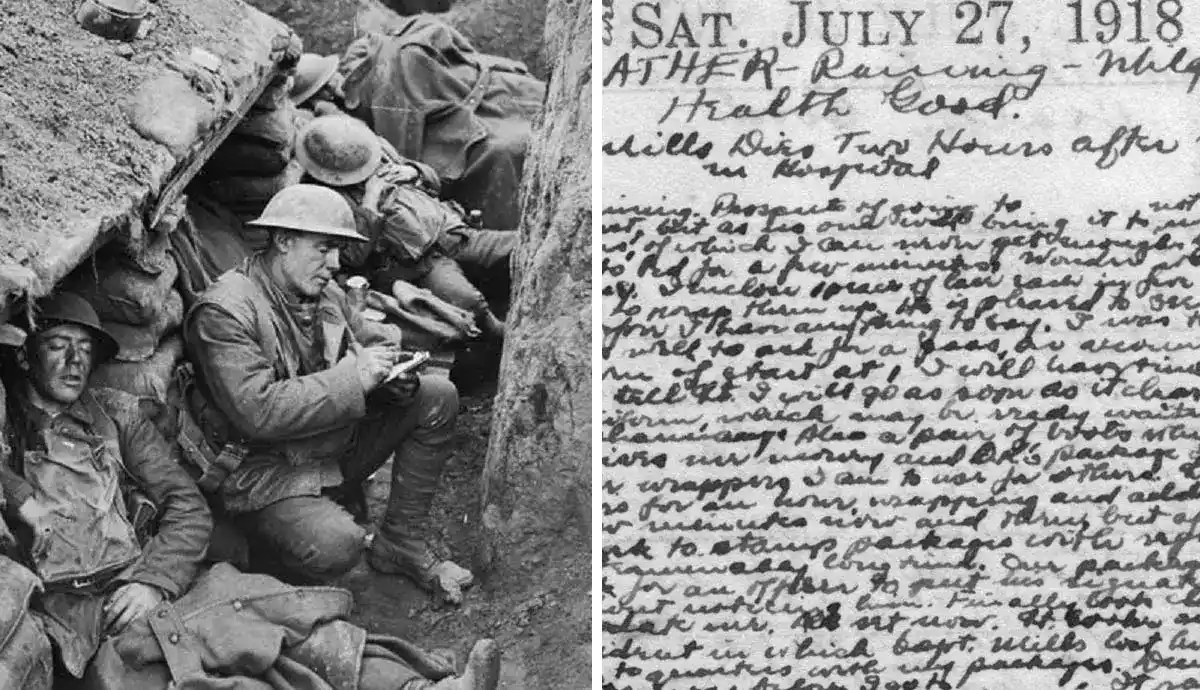Writing Your Army Story
Writing a story isn’t simple for most of us, be it a penchant for rambling, poor construction, or simple grammatical issues. Despite these challenges, an autobiographical experience can teach us about ourselves through reflection, force us to describe our thoughts in words, and can be a valuable tool for counseling our subordinates. Inward reflection is something that we rarely have time to do, and if we do, we rarely have time to put it into writing. When we do, the time spent considering your own self-depiction is professionally valuable. Further professional writing impetus comes from the ‘Harding Project’ as the Chief of Staff’s new push to re-invigorate the Army’s professional writers.
The Assignment
As part of my initial counseling upon arrival at Fort Stewart as a freshly minted Field Grade Officer, I was asked to write a ‘story’ about myself. My first reaction when receiving this guidance was frank surprise. While I write relatively frequently, I don’t often reflect holistically on my entire life. As such, my first step upon receiving this assignment was to read through the ‘story’ provided to me by my rater. While this reading set the boundaries of what I was expected to write, it also gave me firsthand knowledge of my senior rater’s Army experience and gave me a small window into his career to date.
The experience was personally powerful, especially as it required me to directly state where I have both come from and anticipate going. While my formative experiences, hometown life, and generic background covered the initial parts of the story, a further component of the piece was a discussion about the ‘high points and low moments’ of my own Army career to date. While it is tempting to relate only recent events as most memorable, it does take considerable time to delve through my own Army memory to find the high and low moments across my career. Specifically, determining my personal low moment, especially knowing at least one person will read it, was challenging. Recycling Ranger School and various physical failures at West Point were low points, yet these were relatively personal failures. The lowest points of my Army Career stood out as points where I had failed others rather than where I had simply failed myself. Reflecting on these moments, I found my leadership failures occurred when I did not consider the “soldiers always” portion of the “mission first, soldiers always” moniker. Writing this out, as both a reflection and counseling exercise, brought out my feelings on this matter, and forced me to express these thoughts in words rather than in thought.
While the portion that forced me to define my ‘low moment’ was challenging, the exercise caused me to recognize some constants in my life. Army memories were plentiful, especially those tied with family memories, and they clearly stood out to me as moments I desired to repeat for myself and create for my subordinates. The times I was able to interact with soldiers and subordinates to help them avoid mistakes I had made were clearly some of the best times in my career. Learning of the successes of my subordinates after they left my formation and seeing soldiers and families overcome obstacles were two items that stood out from my written reflection. Further, exclusively family moments provided me with a memorable joy that was worthy of noting. As is the theme, committing these thoughts to paper helped me identify this for myself.
Writing for Counseling
Your own writing is a great exercise for you personally, but also serves as a way for your subordinates to get to know you and vice-versa. Writing style, what they choose to highlight, their own struggles, and their backgrounds will enable you to connect with them quicker. A caveat to this method, however, is if you do require your subordinates to write something for your consumption, you must take the time to read their products and show them you have done so. Be it a simple reference to something in their story that you connected with, or a direct reference in counseling, you must let them know you took the time to survey their work.
Initially, I wrote this piece only as an internal reflection on how the exercise foisted upon me helped me grow individually. After leaving the staff job I occupied, however, I began to use this tool both downwards and upwards. Using my subordinate’s Army stories in counseling has proven an easy way to begin counseling them and helped me to understand where they currently stand regarding both service and future life plans.
Lastly, writing, whether we care for it or not, is important to perception. Sometimes the only interaction you may have with someone is through the written word (i.e., email, a letter, or even a Microsoft Teams note). This may be the only impression you ever will get to make on this person, and your writing style and correctness matter. A written story, especially for consumption of a rater or senior rater, can help that person to assess the aptitude of the subordinate at written communication.
Conclusion
The act of committing words to paper about personal feelings, aspirations, and failures with the full knowledge that they will be consumed by your subordinates and rating chain makes you deliberate about how to represent yourself. This exercise helps you both reflect inwardly on your own Army experiences and forces you to purposely examine your own style and written communication. Taken one step further, this written discussion helps generate discussion with your raters and subordinates alike and is a worthwhile endeavor to consider.
Alexander Boroff is an active duty Army Major serving as an Operations Officer for the 2nd Battalion, 69th Armor Regiment.
Opinions expressed here are those of the author and do not represent those of the U.S. Army, the Department of Defense, or any part of the U.S. government.
